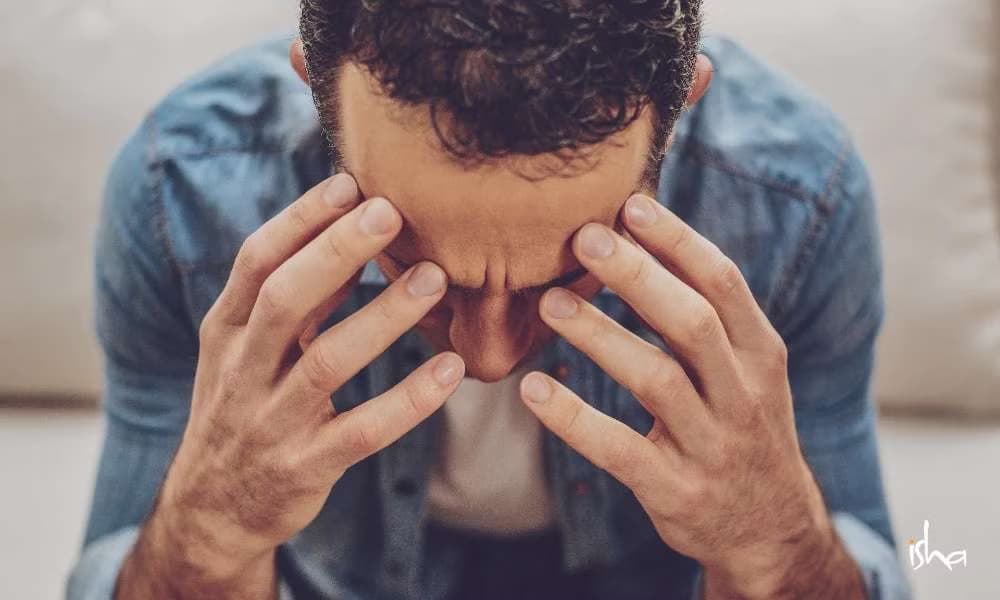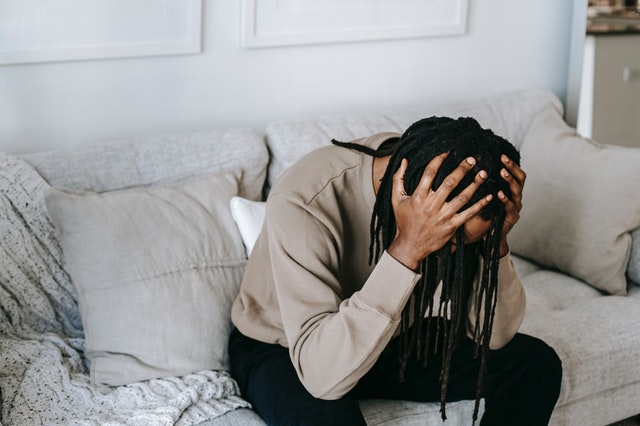Have you ever been stressed or anxious about something, and you can feel your stomach churning? You may feel nauseous, sick, or even like you need to rush to the bathroom. What happens externally in your life can affect your body internally, and make you feel uneasy, unwell, and even sick.
So, are gut problems and gastrointestinal issues linked to anxiety? Can anxiety cause your gut issues?
Are Gut Problems and Anxiety Linked?
When we say gut problems, we are talking about gastrointestinal issues and symptoms such as stomach pains, constipation, nausea, vomiting, heartburn, diarrhea or gas. These stomach issues can be caused by a range of conditions, but when there is no seemingly real explanation, you may be wondering whether they are linked to stress and anxiety.
There have been multiple studies that show a link between anxiety, stress, depression, gut issues, and gastrointestinal symptoms. For example, research shows that individuals struggling with GI symptoms are more likely to suffer from depression or other anxiety-related disorders.
This is largely because our brains communicate directly with the gut. This is not the individual’s fault, as anxiety and gut problems go hand in hand. When the digestive system is affected by stress over a long period, it makes it easier for bacteria to thrive in this environment, making you more susceptible to conditions such as IBS and can worsen symptoms of anxiety and depression.
What this means is that you can develop gastrointestinal problems and symptoms during moments of stress, but you can also become more stressed and anxious because of the gastrointestinal symptoms. They are very closely linked.
Anxiety Related Gut Problems
Gut problems are closely associated with anxiety disorders, such as social anxiety, panic disorder, phobias, and generalized anxiety disorder. The most common symptoms you may experience are loss of appetite, diarrhea or constipation, indigestion, nausea, cramps, or excessive hunger outside of your normal appetite.
If the symptoms worsen, and you see blood in the stool, unexplained weight loss, or excessive bloating, then you may be suffering from a serious GI problem. This could be IBS, IBD, infections, hemorrhoids, or even internal bleeding. In these cases, seek medical help immediately.
 How to Cope with Anxiety Related Gut Problems
How to Cope with Anxiety Related Gut Problems
If you are experiencing a lot of gut problems and anxiety, then it is worth speaking to a medical professional for guidance and treatment. You may have a medical condition. However, if your gut problems are only prevalent when you have anxiety or stress, then there are ways to cope.
Change Your Diet
Improving your diet can help to boost gut health, and help you cope with anxiety. With a good quality, healthy diet and exercise, you can boost your mood. In addition, ensuring you get enough fruits and vegetables can make sure you retain more fiber, omega-3s, and good bacteria that can help balance the gut.
Avoid Caffeine/Alcohol
You should also avoid things like smoking, alcohol, and caffeine. Alcohol and smoking can contribute to changes in the stomach, and can affect the composition of gut microbiota. Caffeine can also lead to increased symptoms of anxiety and can cause stomach upset.
Manage Stress
You should manage your stressors to help cope with anxiety. Practicing stress management, mindfulness, self-care, and meditation have been proven to help bring stress levels down and alleviate symptoms of anxiety.
Speak to Someone
Finally, if you are struggling with your gut health, and trying to cope with your anxiety too, it is paramount that you speak to a counselor, psychologist, or medical professional. They can offer you guidance and support to help you reduce your symptoms and heal. Let’s connect soon so you can learn more about how anxiety treatment can help you and your gut issues.





